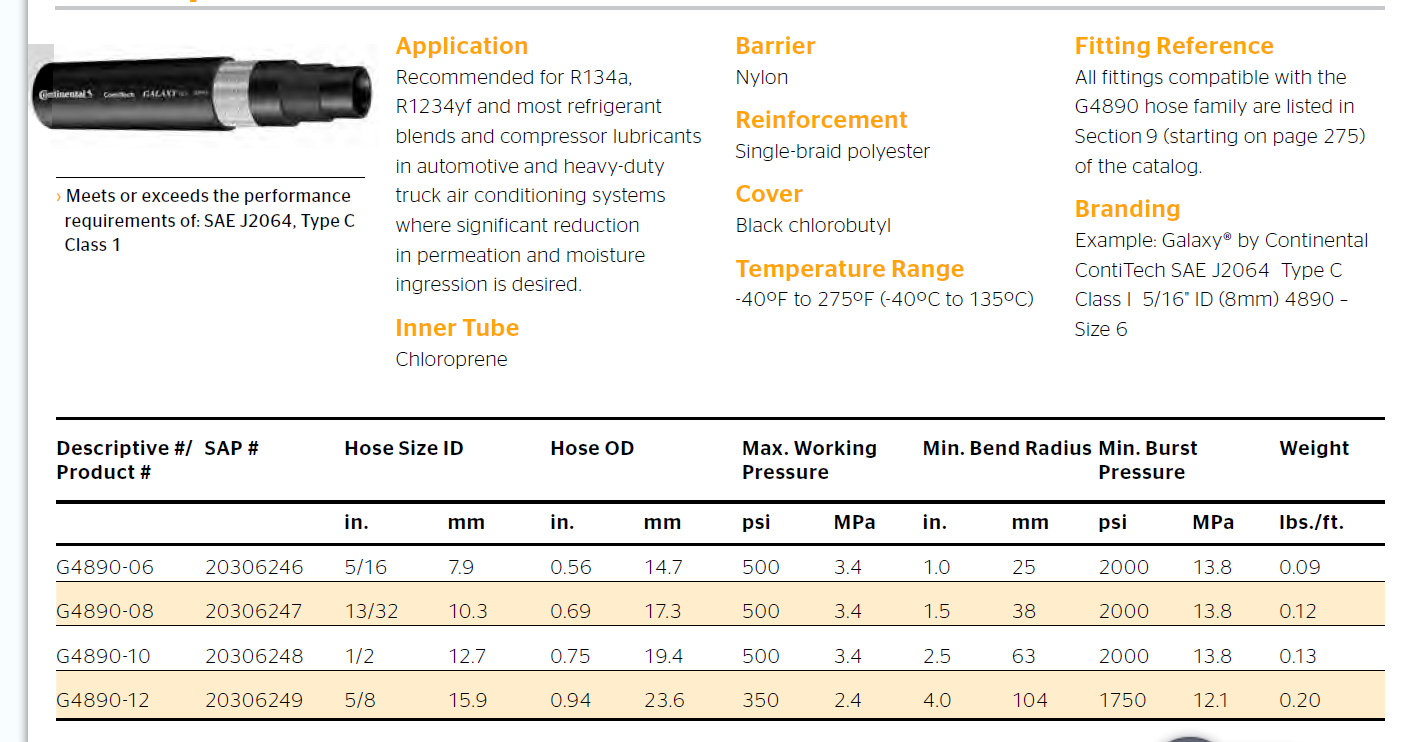High-Performance Fuel Hoses Designed for Efficient Fuel Injection Systems in Automotive Applications
Aug . 13, 2024 14:56 Back to list
High-Performance Fuel Hoses Designed for Efficient Fuel Injection Systems in Automotive Applications
The Importance of Fuel Hoses in Fuel Injection Systems
In the world of automotive engineering, every component plays a critical role in ensuring optimal performance and safety. Among these components, fuel hoses specifically designed for fuel injection systems have gained considerable importance. These hoses are essential for delivering fuel from the tank to the engine's fuel injectors, where precise amounts of fuel are atomized and mixed with air for efficient combustion. Understanding the design, materials, and importance of fuel hoses can provide insights into their critical role in modern vehicles.
Composition and Materials
Fuel hoses used in fuel injection systems are typically made from high-quality materials that can withstand the extreme conditions of the automotive environment. One of the most commonly used materials is reinforced rubber, which provides flexibility and resistance to high pressures. These hoses are often lined with special synthetic materials that are resistant to fuels and biofuels, ensuring that they do not degrade over time. Some hoses even incorporate braided steel or other reinforcement layers to further enhance their durability, allowing them to handle the increased pressures associated with modern fuel injection systems.
Functionality and Design
The primary function of a fuel hose in a fuel injection system is to transport fuel efficiently without leaks or breakdowns. Unlike older carbureted systems, which operated at lower fuel pressures, fuel injection systems can operate at pressures between 30 to 100 psi or higher. To accommodate these higher pressures, fuel hoses must be designed to prevent bursting and maintain structural integrity. Many models feature a multi-layer construction that includes an inner fuel-resistant layer, a high-strength reinforcement layer, and an outer protective layer to shield against environmental factors such as heat, abrasion, and chemical exposure.
fuel hose for fuel injection

Safety Considerations
Safety is a paramount concern when it comes to fuel hoses. Any failure in a fuel hose can lead to leaks that not only compromise engine performance but can also pose significant fire hazards. Therefore, proper installation and regular maintenance are crucial. Mechanics and vehicle owners should always inspect fuel hoses for signs of wear, such as cracks or abrasions, and replace them as necessary. It is also essential to use hoses that meet automotive standards and specifications to ensure performance and safety compliance.
Efficiency and Performance
The efficiency of modern internal combustion engines is heavily reliant on the quality of the fuel injection system, and fuel hoses are a vital component of this system. Quality hoses ensure that the fuel is delivered to the injectors at the proper pressure and flow rate. Malfunctioning or degraded hoses can lead to fuel starvation, misfires, and reduced engine performance. Therefore, investing in high-quality hoses can lead to improved fuel efficiency and engine responsiveness, ultimately enhancing the driving experience.
Conclusion
Fuel hoses for fuel injection systems are indispensable components of modern automotive technology. Their role in safely and efficiently transporting fuel to the engine underscores the need for high-quality materials and proper maintenance. As the automotive industry continues to evolve, with advancements in fuel technology and the ongoing push towards more efficient vehicles, fuel hoses will remain at the forefront, ensuring that engines operate smoothly and safely. Whether you're a car enthusiast, a mechanic, or a casual driver, understanding the importance of fuel hoses can enhance your appreciation for the intricate systems that power today's vehicles.
